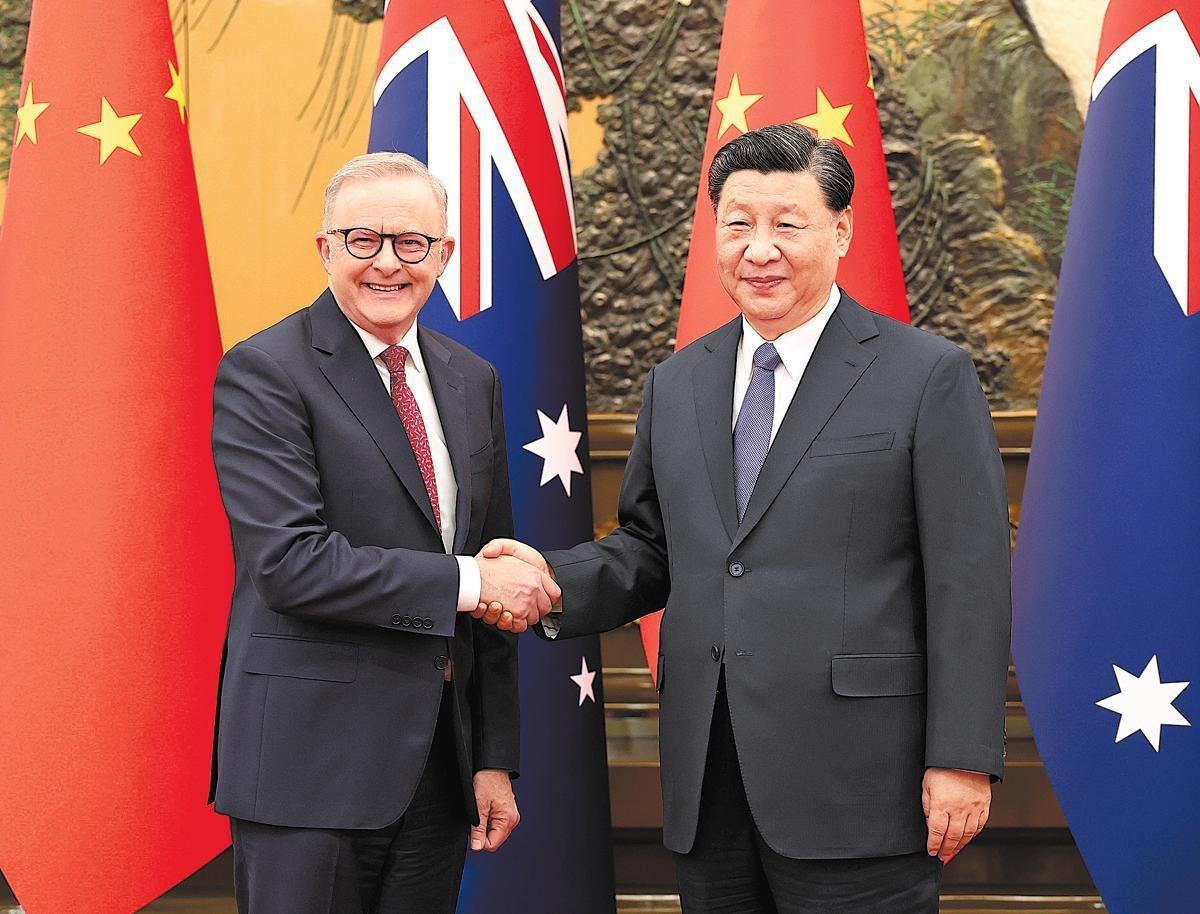 President Xi Jinping and Australian Prime Minister Anthony Albanese shake hands on Nov 6, 2023 at the Great Hall of the People in Beijing. (FENG YONGBIN/ CHINA DAILY)
President Xi Jinping and Australian Prime Minister Anthony Albanese shake hands on Nov 6, 2023 at the Great Hall of the People in Beijing. (FENG YONGBIN/ CHINA DAILY)
Australian Prime Minister Anthony Albanese's ongoing visit to China, the first by an Australian prime minister in seven years, has effectively put behind the unpleasant experience of the past few years and created an atmosphere conducive to deepening cooperation in different fields, which will better serve the interests of both countries.
As President Xi Jinping said during his meeting with Albanese in Beijing on Monday, the two countries have no historical disputes, no fundamental conflicts of interest, and can deepen mutual trust and make mutual achievements.
The two countries should follow the trend of the times, proceed from their common interests, jointly strengthen China-Australia relations based on equality, seek common ground while shelving differences, and deepen mutually beneficial cooperation, Xi said.
President Xi stressed that small cliques cannot adapt to the great changes in today's world, and countries must be vigilant against and oppose attempts to destabilize the Asia-Pacific region.
That should be the consensus between the two countries on which they can further advance their comprehensive strategic partnership. This serves the common interests of both countries and their peoples, and meets the common expectations of the countries in the region.
The two sides should give full play to the China-Australia Free Trade Agreement, expand cooperation in emerging areas such as the green economy and the fight against climate change, safeguard the free trade system, and develop a good business environment for the enterprises of the two countries to invest and operate freely, as Xi urged.
Echoing Xi, Albanese said the differences between the two countries should not be allowed to define the bilateral relationship, as Australia and China have broad common interests, and dialogue and cooperation are the best way to move forward and ensure mutual benefit. That shows the Australian side's willingness to meet the Chinese side halfway to put bilateral ties back on the track of healthy development.
Before Albanese's visit, China and Australia had settled the dispute over wine and wind turbine trade, with Australia even shrugging off so-called security concerns over a Chinese company getting the lease for operating the Port of Darwin.
As an ally of the United States and given the increasingly aggressive competition between China and the US, Australia needs to formulate an independent China policy which is not affected by its alliance with the US. Blindly following the US in China-related issues will only hurt the interests of Australia and bring more twists and turns to China-Australia ties.
In the turbulent world of today, healthy, stable and robust Sino-Australian ties would not only cater to the interests of both countries but also contribute to peace, stability and development in the Asia-Pacific region and the world beyond.


